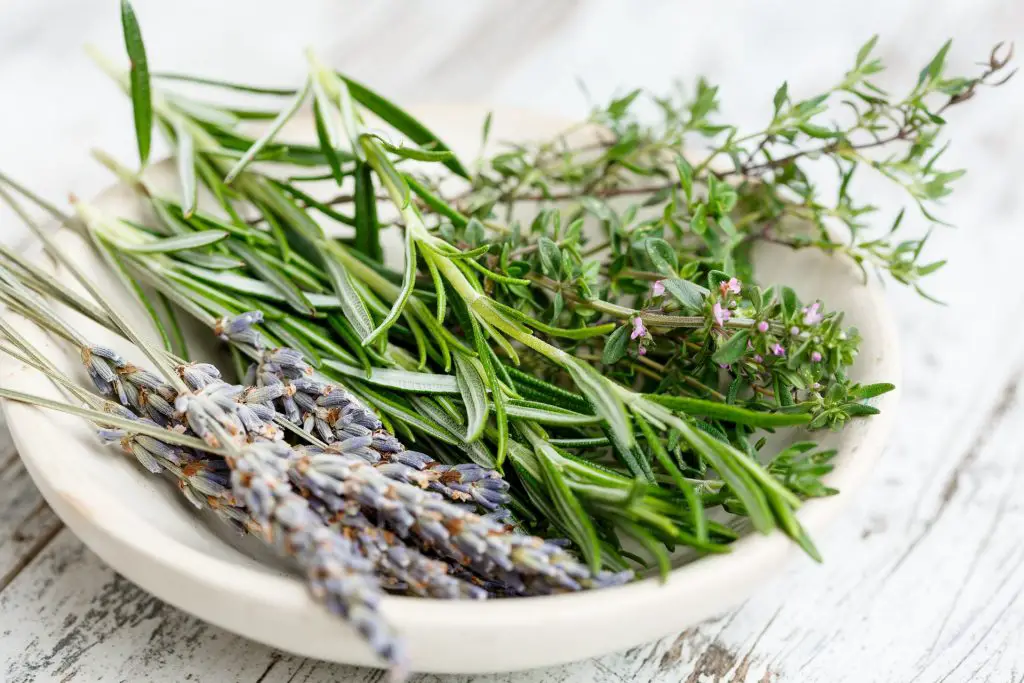A sore throat can be uncomfortable, painful, and disrupt your quality of life. Using aromatics like essential oils can help alleviate pain, eliminate inflammation, and boost your immune system. Curious to learn how to use essential oils for sore throat? Read on!
Essential Oils for Sore Throat

1. Echinacea
This Native American plant has been widely regarded for its medicinal properties. Echinacea is typically effective in treating symptoms associated with the common cold and flu, including sore throat.

In fact, studies show the above-ground parts of the echinacea plant are teeming with polysaccharides. These specific compounds support and stimulate the immune system.
Apart from improving respiratory health, echinacea can also be used to treat slow-healing wounds, mild skin irritations, and bruises.
2. Garlic
Garlic has powerful antibacterial and antiviral properties. This is because raw garlic contains allicin, which is a biologically active compound that helps reduce inflammation and fight infection.
Most people would veer away from garlic essential oil, especially for its typically pungent odor. However, ingesting a drop of garlic essential oil can actually prove effective in treating sore throat.

Feel free to mix it with a carrier oil such as sweet almond oil or coconut oil, to help mask its powerful aroma and flavor.
3. Thyme
Thyme is a hardy but fragrant herb, grown all over the world. You may have used it in your cooking, since it’s used in everyday seasonings. Though it’s now regarded as a kitchen staple, don’t underestimate its powerful antibacterial properties.

Studies show that thyme essential oil contains powerful antibacterial properties that make it effective in treating sore throat. Moreover, thyme also helps prevent coughing—which can cause, worsen, or aggravate sore throats.
If your sore throat comes with mucus and phlegm, then thyme should be your go-to essential oil.
How to Use Essential Oils for Sore Throat
Now that you know which essential oils are effective in treating sore throat, here’s how you can use them.
1. Mix a drop of your chosen essential oil in a glass of water.
Take 1 to 2 drops of your essential oil of choice, then mix it in a tall glass of lukewarm water. Make sure that the essential oil you’re using is food-grade, so you can easily ingest it.
If you would like to, you can also mix your EO into a cup of tea or your beverage of choice. When it comes to treating sore throats, try to avoid overly sweet and cold beverages like iced drinks, cold juices, shakes, and smoothies.
Why not mix a drop of echinacea oil with echinacea tea, for an extra boost?
2. Use a roller and apply topically.
Is your sore throat accompanied by colds? Mix 2 to 3 drops of your chosen essential oil with a carrier oil like jojoba oil, argan oil, olive oil, and the like. Then, add the mixture into a roller.
Using the roller, apply the essential oil mixture below your nostrils and key pulse points like behind your ears, on your temples, and at your nape.
Inhaling these oils should help you feel more energized and enlivened. Do this before bedtime, to help you sleep and recover better.
3. Use a warm compress.
your sore throat is causing pain in your neck and chest, then draping an EO-infused warm compress should help provide relief.
If you’re using a cloth, make sure this cloth is clean and absorbent. Feel free to use cotton, wool, or linen. Leave on your neck or your chest for 10 to 15 minutes, or until you find relief.
4. Use a steam bath.
Add 5 to 7 drops into a warm, steamy bath. Soak in your bath for 15 to 20 minutes. If your sore throat also comes with muscle pain, then this should also help you feel more relaxed and unwind.
Another alternative is to boil a pot of water, then add a few drops of your EO of choice. Then, inhale the mixture for 5 to 10 minutes.
Now that you know how to use essential oils for sore throat, try to use any of these techniques the next time you have one.
More importantly, make sure you consult your medical professional before proceeding with any kind of home treatment or natural remedy.
Should symptoms persist, further consult your doctor or medical professional.



